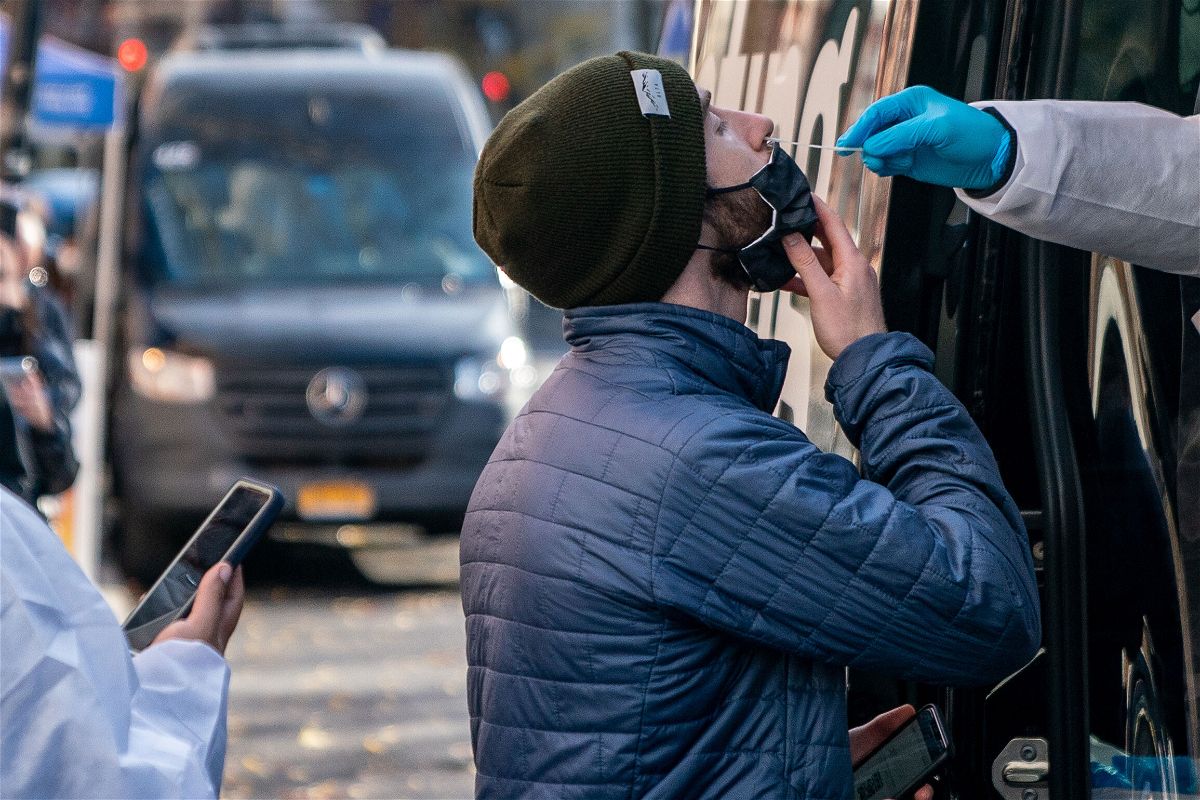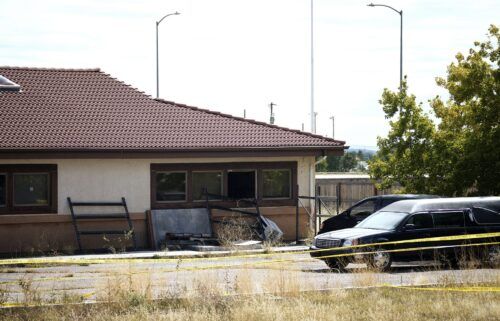Long lines for Covid-19 testing as Omicron variant looms

By Jen Christensen and Tara Subramaniam, CNN
The lines for Covid-19 testing are long from New York to Miami-Dade County again, and good luck finding an at-home test in some parts of the country.
As the Omicron variant spreads faster than any other coronavirus variant before it, the Biden White House has been pushing to make tests more accessible. They’ve made this push for months, but critics say it is not nearly enough.
Supply just can’t keep up with demand, and yet with Omicron being so much more infectious, testing will become more important than ever, said Mara Aspinall, professor of practice at the College of Health Solutions at Arizona State University.
“We are at a very, very precarious moment,” Aspinall said. “Testing is our only exit strategy out of all of this.”
If people don’t test, it puts the country at risk for a greater spread of the disease.
“Testing is the core because without that, there’s no way people will isolate,” Aspinall said.
Most disease in the US now is still being caused by the Delta variant.
In addition to the usual demand for tests, the current increase stems from people with a few different needs, she said. Some have symptoms, and with the flu and other viruses floating around, they want to know if they have Covid-19. Others want to test before they get on a plane or spend time with family over Christmas. Both are important reasons to get a test, she said, but the test supply is just not ready for them.
“As recently as a week ago, I thought maybe we had enough tests, but if Omicron ends up at 200,000 or 300,000 cases a day, we likely don’t have enough tests,” Aspinall said. “At each stage we thought it was close to enough, and now we know it’s not enough.”
Last week White House Covid-19 Response Coordinator Jeff Zients insisted that “there’s plenty of free testing across the country.”
Since then, cases have spiked dramatically in some states. The US is now averaging 121,707 new Covid-19 cases each day, according to Johns Hopkins University. New case rates have been holding steady over the past week, but at levels last seen in September at the end of the summer surge. And cases are increasing at a much faster clip in parts of the Northeast, Midwest and South.
White House Press Secretary Jen Psaki scoffed last week when asked if tests should be free and given out, available everywhere.
“Should we just send one to every American?” she asked.
However, similar initiatives already exist at a local level in some cities.
On Thursday, New York City Mayor Bill deBlasio announced the city would begin distributing half a million at-home rapid Covid-19 tests for free through community organizations. There are also programs in Ohio that distribute rapid tests through public libraries. In Atlanta, a program called Say Yes! Covid Test sends tests to homes in certain zip codes.
While some public health experts have said they would like the federal government to send tests to everyone, as some European countries do, Aspinall doesn’t think that would be possible. The program would be expensive and may need additional funding from Congress which may not be forthcoming. Second, not everyone who gets one would use the tests, and the tests are too important to waste.
When CNN’s Kaitlan Collins asked during a press briefing Monday why the US government has not made rapid tests free like other countries have, Zients doubled down on his claim that the country has sufficient testing available.
“There is enough testing capacity in this country,” Zients said, adding that “testing is free in many venues across the country.”
Zients said, “Our goal is to give free tests to everyone who wants one in the most efficient and effective way possible.”
In that vein, the Biden administration has taken steps to make Covid-19 testing more accessible.
As Dr. Rochelle Walensky, director of the US Centers for Disease Control and Prevention, emphasized in a December 3 interview, the US is “doing a lot to scale up testing,” including offering Covid-19 testing in major international airports and free PCR tests at 10,000 sites across the country.
In early December, President Joe Biden also announced insurance companies would be required to pay for at-home tests, as part of a multi-pronged effort to curb a potential winter surge. This comes months after his administration announced a $1 billion investment in rapid testing that included having retailers such as Walmart, Amazon and Kroger sell at-home rapid test kits at cost for three months.
Still the experts say these efforts, while a good start, aren’t nearly enough. According to Aspinall, the country also needs to increase programs like Say Yes Covid Test that get more tests in the hands of people who can’t afford them or don’t have access, and target areas that are high social vulnerability index.
Why US testing lags
The reasons why testing can’t keep up to demand vary.
Some problems stem from the testing industry. “The companies don’t always have enough staff to run a lot of third shifts,” Aspinall said.
But the bigger problem may be with the regulatory environment itself. Companies like Roche and Siemens have publicly said that they’ve submitted their Covid-19 rapid tests for US Food and Drug Administration authorization, Aspinall said, but the tests have not been authorized yet. Those same test are already being used in Asia. It’s unclear what the hold-up with FDA is.
“We’ve got to find a way, whether it’s staffing or otherwise, to get enough resources to the FDA,” Aspinall said.
Alex Tabarrok, an economics professor at George Mason University who co-authors a web site on FDA policies and reform, told CNN “the FDA has been too slow to approve rapid antigen tests. As a result, prices for these tests are much higher in the United States than in the rest of the world.”
Michael Mina, a testing expert and epidemiologist who works as the chief science officer at biotech software company eMed, believes the FDA is thinking about rapid Covid-19 tests all wrong. The agency sees these tests as a medical device, and medical devices require “long, slow clinical trials which take months and months and millions of dollars.” He said instead the FDA should think of them as a public health tool. Mina said he doesn’t want the FDA to accept lower quality tests, but lower sensitivity would be ok.
“If I’m thinking about the public health, I need a test that’s very fast. It doesn’t need to be as sensitive as a PCR test,” Mina said.
He said he’s spoken with manufacturers that make many millions of tests a day that won’t bother with the US market because the standard is too high and plenty of other countries are buying them.
“The FDA doesn’t really seem to be able to budge. It is such a jarringly terrible problem,” Mina said.
What’s clear is the country needs to do everything it can to increase access to testing, Aspinall said.
“Testing and isolating is the way to slow it and stop it,” Aspinall said. “We can’t give the virus any more victims.”
The-CNN-Wire
™ & © 2021 Cable News Network, Inc., a WarnerMedia Company. All rights reserved.


